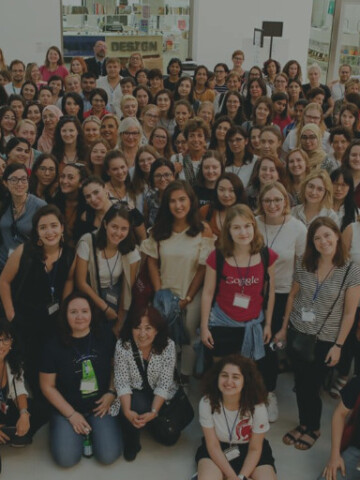
Female talent in STEM careers
April 26, 2024
Cristina Márquez, senior data scientist in Sngular’s Data & Artificial Intelligence team, shares her thoughts on why female talent hardly accesses STEM careers and gives some insight on how to change this reality.
It is usually assumed that the lack of female talent in STEM professions is due to the shifting interests that teenagers experience through time, which have little to do with science, technology, engineering, and mathematics. Others prefer to blame it on the difficulty in achieving a healthy work-life balance.
But to really understand the frustrations that keep women away from software engineering, we need to dig into data and find out what their profiles are and the decisions they make.
Cristina Márquez did so at the eighth edition of the ACM-WomENcourage international conference, held in Prague in September 2021 and streamed online. Cristina holds a PhD (cum laude) in 5G and Big Data (applying Artificial Intelligence) from Carlos III University of Madrid (UC3M) and the Massachusetts Institute of Technology (MIT) and is currently working as a senior data scientist in Sngular’s Data & Artificial Intelligence team.
Speaker in more than 10 countries to foster STEM talent, Cristina participated in ACM-WomEncourage for the second year in a row. Her experience and active promotion of these professions have led her to do research on the reasons why the decline of female STEM careers is a global issue, more significantly in the post-doctoral years.
WomENcourage: building bridges to foster innovation
ACM-WomENcourage is a conference open to everyone aimed at giving visibility to STEM professions, connecting women from various technical disciplines and encouraging them to continue their studies and pursue a career in the computing industry. This conference has been gaining popularity year after year: in the 2021 edition, more than 250 people from 38 different countries joined the event.
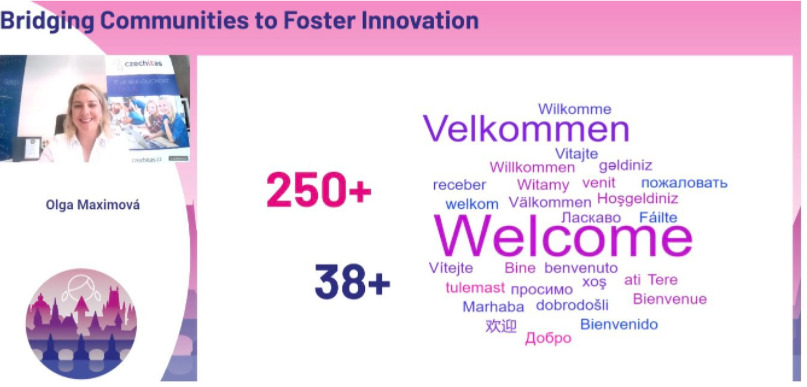
ACM (Association for Computing Machinery) is a worldwide association that brings together professionals, students, researchers, and people interested in computer science and other disciplines such as telecommunications, mathematics, bioengineering, etc.
Cristina names other initiatives that are effectively helping to narrow the gap between women and STEM professions, highlighting Technovation Girls and IA en Familia (AI Family Challenge), which "are aimed at promoting awareness of the mentioned professions through direct and practical contact with technology." But she also points out that there is still much to be done.
Women in STEM careers
What keeps women away from software engineering? At the conference, Cristina had the opportunity to explore the study Frustrations Steering Women away from Software Engineering, which focuses on two types of profiles interested in this area, although people who are not interested (29% of the sample) are also surveyed.
The Persona 1 (P1) type represents those who studied computing and have remained in the field (39% of participants), while the Persona 2 (P2) type represents those who shifted from this field to a different one later in life (32% of participants).
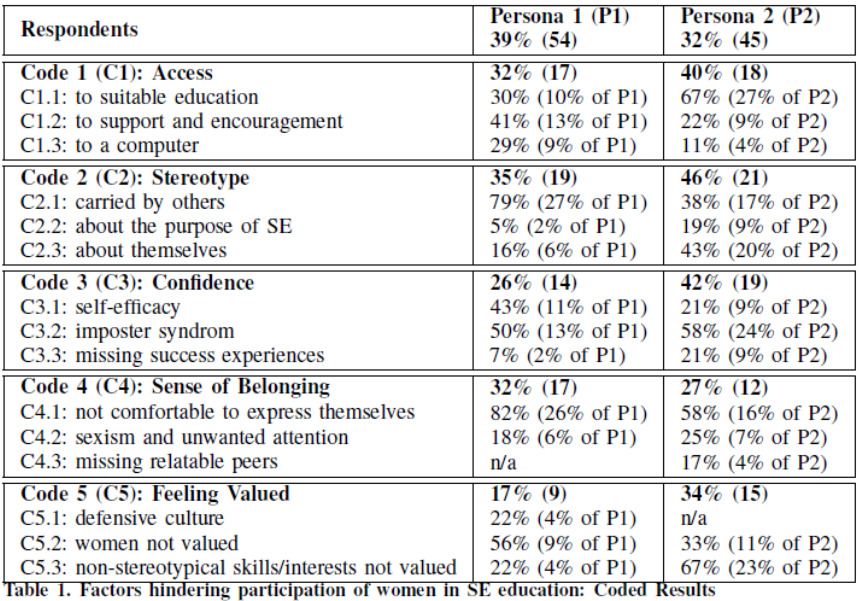
In the table above, 5 types of cases are considered, which go beyond the initial assumptions regarding shifting interests or work-life balance concerns.
Here is the description of each case:
- Access to education, support, or a computer.
- Stereotypes (carried by others, about themselves, or about the purpose of the career).
- Confidence, based on the awareness of one's capabilities, the presence of impostor syndrome, or the lack of successful experiences.
- Sense of belonging, which includes aspects like sexism or missing relatable peers.
- Feeling valued, in the sense of whether their interests are supported, the defensive culture, the undervaluation of women, or the lack of role models.
As you can see, the initial assumptions are obsolete and refuted by data. Thus, the lack of role models and visibility - exacerbated by diverse conditions ranging from access to education, stereotypes, or the work environment - are key points. The conclusions of this study can be complemented with NGI's 2020 talk (with data extracted from PersolKelly), in which two alarming facts were mentioned:
-
82% of women in Europe who are studying for a degree tend to shift their career aspirations from male-dominated careers to gender-neutral or female-dominated careers. The study shows that this shift occurs in their senior year.
-
Women tend to drop out of the workforce at key life phases, most notably around childbearing years and then again at mid-management levels, where their networks and peer ranks start to thin. In the U.S., 50 percent of women drop out of STEM positions in the first 10 years.
It seems clear that innovation and creativity cannot reach their full potential with the contribution of only a part of the population. Therefore, it is important to encourage support, wherever it comes from. The study The underrepresentation of women in computing fields: A synthesis of literature using a life course perspective highlights the difference in how boys and girls spend their leisure time and the influences that shape it.
In addition, although with limitations due to its limited sample and the date on which it was conducted, the study Frustrations Steering Women away from Software Engineering highlights that the environment becomes hostile due to stereotypes and the difficulty of expressing one's true nature in the software engineering field. Expressions such as "a man's world", "I will not be happy", "I prefer to do girls' things", "swimming against the tide" or "these are careers for intelligent people" are just some of the testimonies collected and clearly sum up the conclusions mentioned above.
Solutions and proposals
Cristina Márquez shares her thoughts on what can be done to reverse the trend and what is already being done, and encourages to "awaken curiosity and challenge students to think about what is behind what they use every day (technology, professionals), according to their personal interests and in a responsible way".
But she prefers to avoid theoretical approaches and insists on a hands-on approach: "Given that the future is digital, the sooner awareness is raised to reduce the digital and gender gap from an early age the sooner we will be solving the problem at its roots.” Cristina thus proposes making technology professionals visible in education by “programming something simple with block coding tools such as Scratch or MIT App Inventor or playing with toys like these ones” (in Spanish).
Another idea Cristina proposes is that of "fostering STEM careers throughout all educational stages.” She also points out the importance of stimulating critical thinking and problem-solving through technology, giving visibility to STEM professionals, and talking about their objectives and the purposes that drive them. Technology events in schools are fundamental, as they "bring out unknown or forgotten passions by female teenagers, showing them how close they can be to technology in their present time." Finally, it is also necessary to involve companies in such conferences, thus contributing to the creation of a network committed to the promotion of these approaches.
As for female role models in these fields, Cristina mentions both famous and less famous women, like Marie Curie and Ada Lovelace (known globally) or Nuria Oliver and Nerea Luis Mingueza, (both from Spain).
Who are the “new female role models” according to Cristina? Here is the answer:
- Valentina Tereshkova: the first woman in space (1963).
- Beth Rudden from IBM US: she started out as a language lover, then was an archeologist, an anthropologist, a programmer, a researcher, a technical executive, and now a social scientist. She told in one of her talks that she grew up in a family where they believed that "she could go to university and achieve anything she wanted to."
- Anna Maria Mandalari (UK): leading figure in both science and sports. Cristina shared lab office and rehearsed for conferences with Anna Maria during her doctoral studies.
- Rebeca Minguela, entrepreneur from Valladolid (Spain): Cristina heard about her a couple of years ago and she would love to know more about her work.
- Last but not least, all the female STEM professionals and students who are not so well known and are striving for recognition.
Cristina Márquez on STEM careers
Below you can read a brief interview about Cristina’s personal and professional experience:
What has your personal experience been like and why do you think you have managed to get into STEM careers?
In my experience, at school, there were very few women interested in science or technology; then, at the university, I remember that almost half of my female classmates quit just after the first year. This week I met with the Technovation Girls LPSN team and they told me that the trend is still the same. I think that having access to a computer from a young age could have had a positive impact, but seeing that this trend is not changing and taking into account school dropout rates in Spain, I would say that it has to do with a misconception of what a career is and what its contribution to society is (since there are more vocations related to mathematics or bioengineering), along with the impression that "the effort is not worth it", as some stated.
Actually, at the professional stage where I am right now, one could say that I’m a STEM professional who has moved away from the academic path. However, I am still in the technical domain and I’m in close contact with science in the private sector. Also, I’m still into it, as I still participate in conferences and foster innovation.
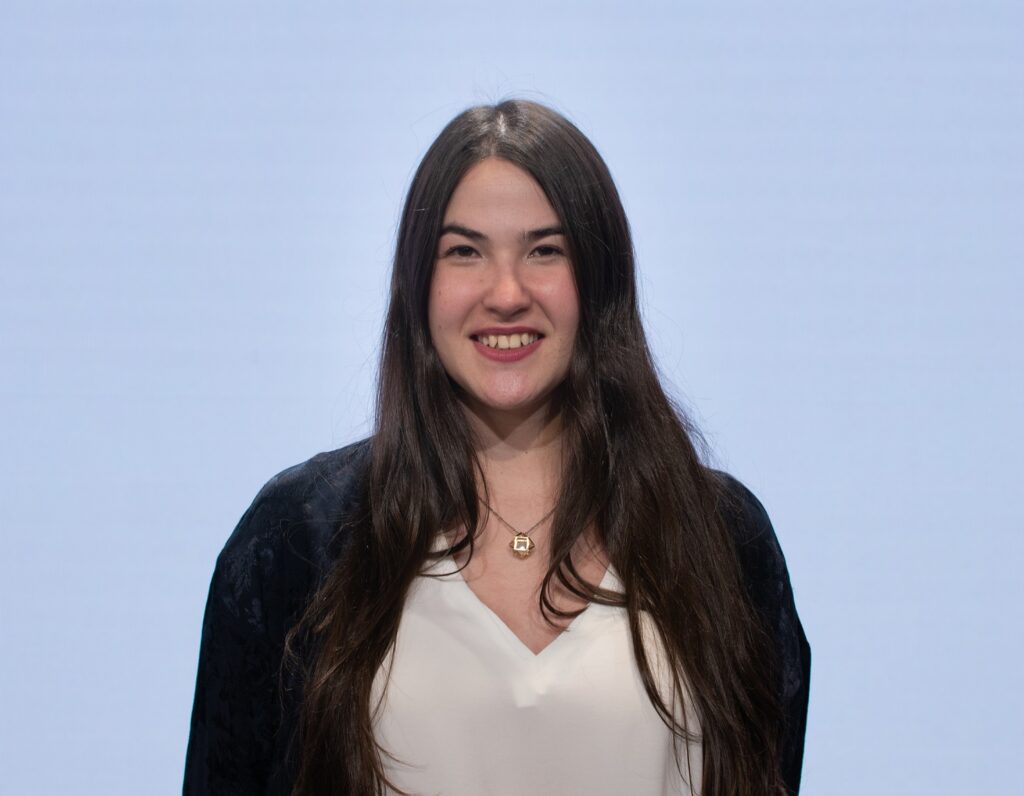 Cristina Márquez
Cristina Márquez
When did you realize that you wanted to specialize in this area? Were you already sure that it would be the right path during your childhood and teenage years?
Since I was young, I have been interested in everything related to technology. When I was little, if I saw a floppy disk, a video game, or a video player, I would try to know how to use it. I remember that I came to know about the Internet thanks to a tv show when I was very young (7 years old, approximately) and I wanted to understand the relationship between the digital and the real world. I was amazed by how fast technology was advancing. It was clear to me that I wanted to be an agent of change and I chose a science and technology program in high school.
Did you notice any changes in your confidence when you started working? Have you ever thought about quitting?
Every change has its dark side and, of course, I was afraid, but the desire to succeed was stronger. Similarly, there are days when everything seems difficult and I wonder if what I am doing has any positive impact, but every time I receive a message from a colleague or a fellow student, I no longer have doubts.
The reports you quoted reflect that women feel rejected throughout their studies because they are surrounded mostly by men. What advice would you give to those who end up readjusting their ambitions?
You have to go for what you want with courage and confidence, both in yourself and in the changes that are happening, even if you’re afraid or everything seems going against you. If you feel that your colleagues are in a better position or have more experience, you should not lose heart, everyone has their own pace. In addition, I believe that the talent and skills we share with our colleagues are essential. Interdisciplinary working groups, in my experience, do make a difference. In fact, this is applied at MIT and they have been leading the QS World University Rankings for ten years in a row.
More and more areas are becoming more inclusive and managers are expected to be more diverse as well. If there is no commitment, this is going to be difficult to achieve. So I hope that this massive talent - under-represented within the STEM field - will increase because it would result in more ethical applications of technology, in collaboration with the current protagonists. I also wish that all members of this area achieve a healthy work-life balance, regardless of their situation, and suited to their personal needs.
You have a long career ahead of you, what are your next steps? How do you plan to continue growing professionally?
Thank you very much! Now that I have finished my PhD, in the midst of a global pandemic, I would like to keep adapting to changes as fast as I have done so far and contribute to creating the world I would like to live and grow. Technology advances fast and you have to keep up with it. As for my next steps, they say that if you want to make God laugh, tell him about your plans.
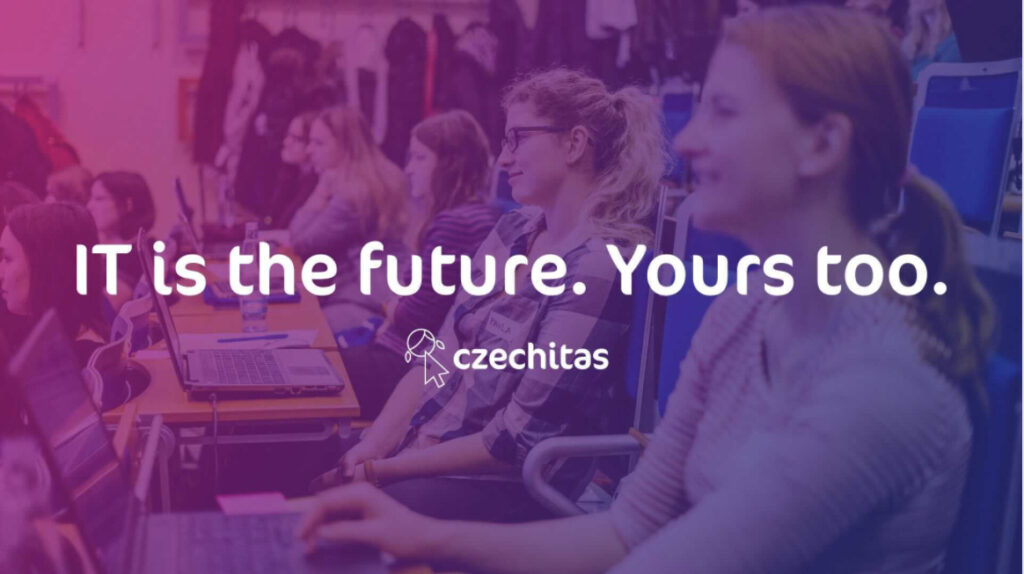
***The cover photo belongs to the ACM-WomENcourage community.